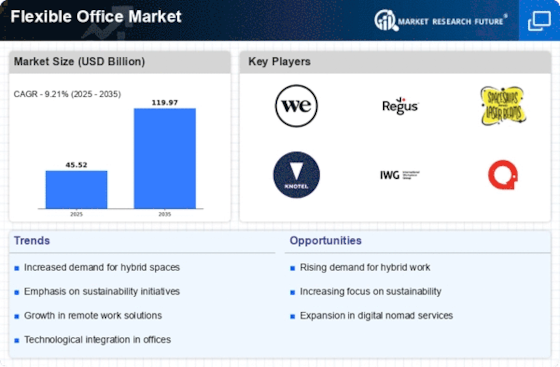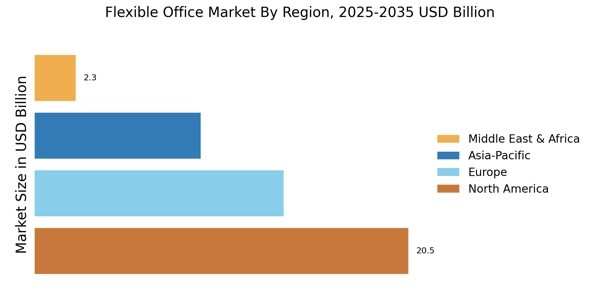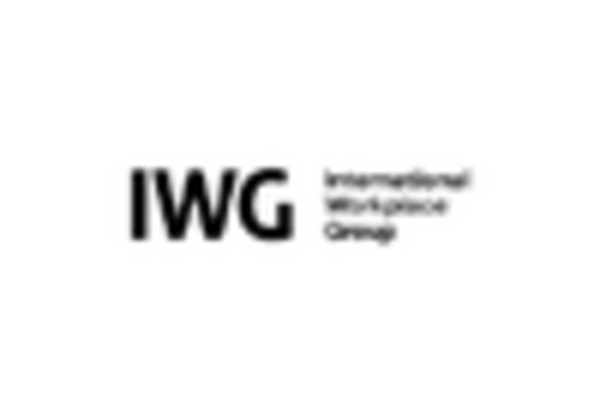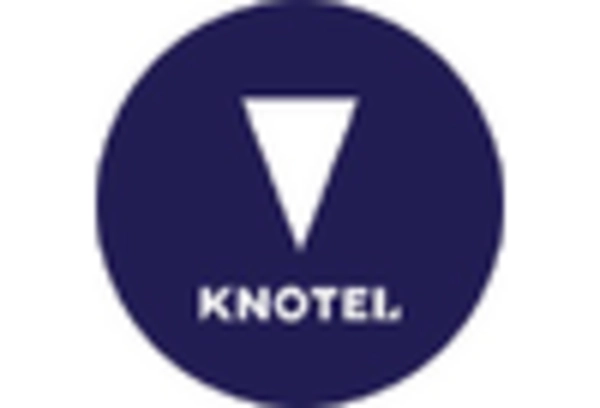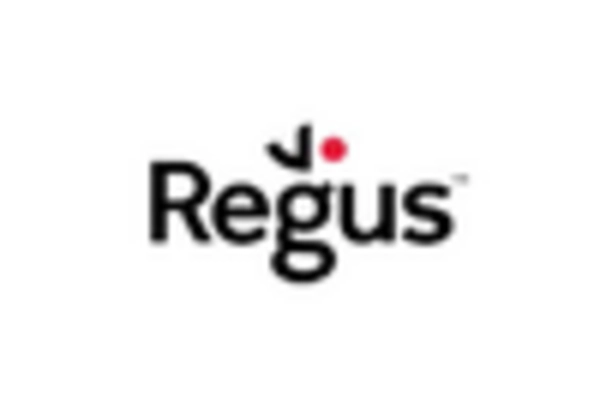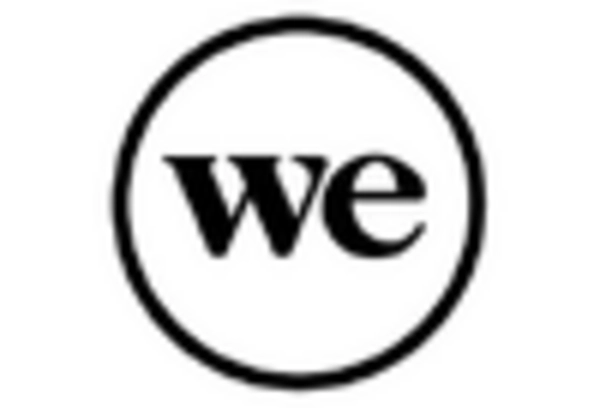Rise of Remote Work Culture
The rise of remote work culture appears to be a pivotal driver for the Flexible Office Market. As organizations increasingly adopt flexible work arrangements, the demand for adaptable office spaces has surged. According to recent data, approximately 70% of employees express a preference for hybrid work models, which necessitate flexible office solutions. This shift not only allows companies to reduce overhead costs but also enhances employee satisfaction and productivity. Consequently, the Flexible Office Market is witnessing a transformation, with businesses seeking innovative workspace solutions that cater to diverse work styles. The trend suggests that the future of work will likely be characterized by a blend of remote and in-office experiences, further propelling the growth of flexible office spaces.
Shift Towards Cost Efficiency
The shift towards cost efficiency is a notable driver for the Flexible Office Market. Businesses are increasingly seeking ways to optimize their operational expenses, and flexible office solutions provide a viable alternative to traditional leasing models. Data suggests that companies can save up to 30% on real estate costs by adopting flexible office arrangements. This financial incentive is compelling organizations to explore coworking spaces and shared offices, which offer scalability and reduced financial risk. As the need for cost-effective solutions continues to rise, the Flexible Office Market is expected to expand, catering to businesses looking to maximize their resources while maintaining a professional workspace.
Increased Focus on Employee Well-being
An increased focus on employee well-being is emerging as a crucial driver for the Flexible Office Market. Companies are recognizing that a healthy work environment contributes to higher productivity and lower turnover rates. Research shows that organizations that prioritize well-being initiatives experience a 25% increase in employee satisfaction. This trend is prompting businesses to invest in flexible office solutions that incorporate wellness features, such as natural lighting, ergonomic furniture, and collaborative spaces. As the demand for healthier work environments grows, the Flexible Office Market is likely to adapt, offering designs that promote physical and mental well-being, thereby attracting more clients.
Growing Demand for Collaborative Spaces
The growing demand for collaborative spaces is shaping the Flexible Office Market. As teams become more project-oriented, the need for environments that foster collaboration and creativity is increasing. Studies indicate that 80% of employees believe that collaborative workspaces enhance teamwork and innovation. This trend is driving companies to seek flexible office solutions that provide open layouts, meeting rooms, and communal areas designed for interaction. The emphasis on collaboration is likely to influence the design and functionality of flexible office spaces, making them more attractive to organizations aiming to enhance teamwork and drive productivity. Consequently, the Flexible Office Market is poised for growth as it adapts to these evolving workplace dynamics.
Technological Advancements in Workspace Design
Technological advancements in workspace design are significantly influencing the Flexible Office Market. The integration of smart technologies, such as IoT devices and AI-driven management systems, enhances the functionality and efficiency of flexible office spaces. Data indicates that around 60% of companies are investing in technology to optimize their work environments. These innovations not only streamline operations but also improve the overall user experience, making flexible offices more appealing to businesses. As organizations prioritize technology in their workspace strategies, the Flexible Office Market is likely to evolve, offering more sophisticated and responsive environments that cater to the needs of modern workers.


